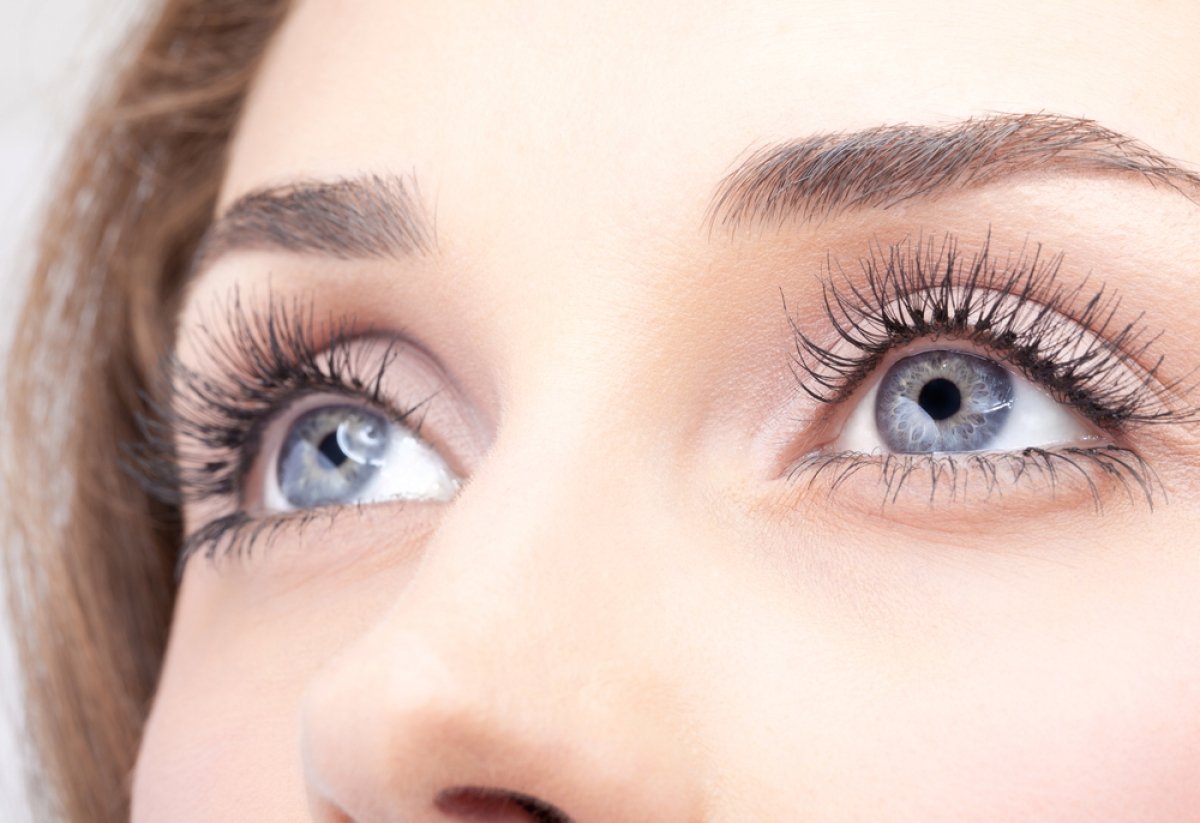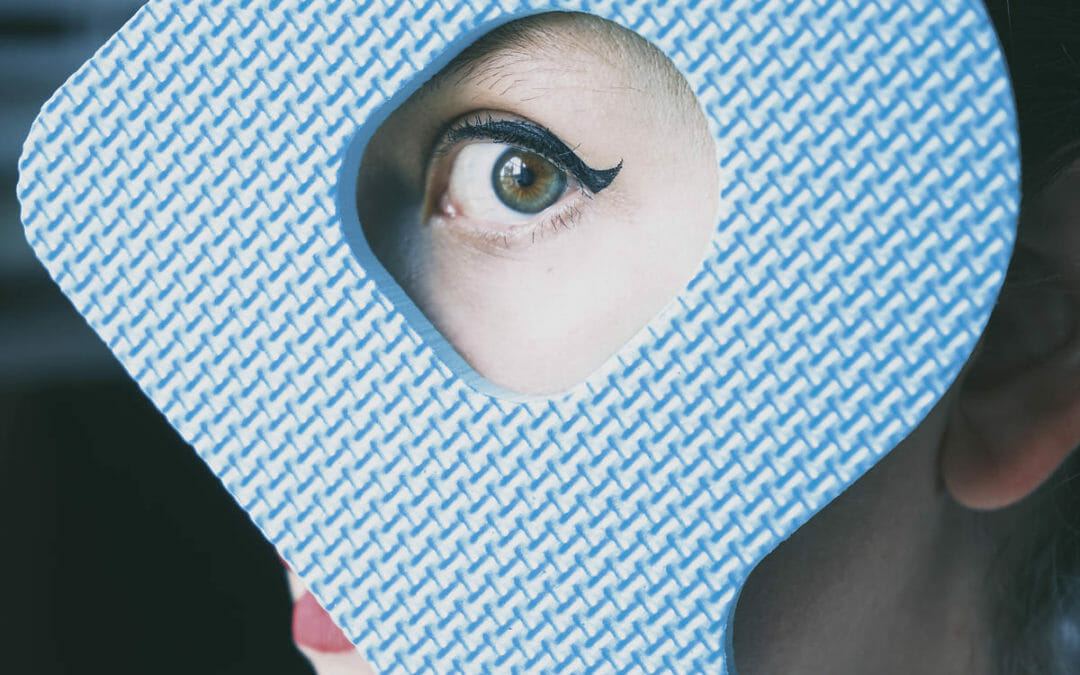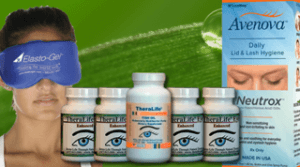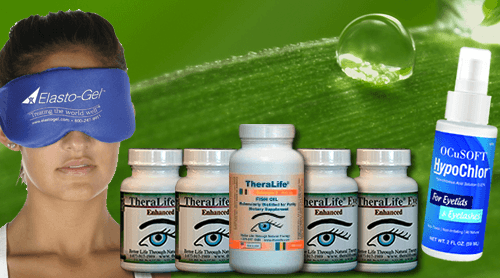Why Is My Eyelid Swollen?
Eyelid swollen is a very dangerous condition. It is often indicative of a medical issue or a medical needing emergency medical treatment. Treatments will vary according to the cause. Possible reasons can be to discover the causes of enlarged eyelids and how to treat the condition effectively.
Many people also use “puffy eyes” interchangeably with eyelid swollen. Puffy eyes typically refer to swollen eyes from external reasons, such as water retention, a lack of sleep, or genetic traits like hereditary dark circles under the eyes. However, for medical professionals, swollen eyes generally describe an immune system response to an allergy, infection, or injury.
One of the major reason for swollen eyelid is dry eyes leading to blepharitis – inflammation of the eyelid, chalazion or stye.
Eyelid Swollen Due To Blepharitis and Dry Eyes
Treat the underlying cause of swollen eyelids due to blepharitis, chalazion or styes with TheraLife.
Relief your dry eyes to prevent recurrence. Make more tears naturally with an oral formula that works.
Call toll free 1-877-917-1989 US/Canada
email to: [email protected]
Symptoms of Eyelid Swollen
Depending on the cause, eyelid swollen can sometimes be somewhat painful, affecting the upper eyelid, lower eyelid, or both.
In general, eyelid swollen symptoms are itching or scratching sensations, excessive tear production resulting in watery eyes, obstructed vision, redness of the eyelid, eye discharge, and eyelid dryness or flaking.
Pain generally accompanies eyelid swollen caused by an infection.
It occurs when the eyes become swollen from allergies or infections. Those who have swollen eyelids also have eye aches. Sensitiveness to lights (photophobia). Increasing tear production, causing a wet eyelid. Obstructive eyesight (as measured by swelling). Red eyelids. Red spots on white eyelids. Eyes discharged. Dry eyelids. Sores, especially from infections – this will help you understand what swollen eyes look like:
Causes- Eyelid Swollen
Causes can range from fluid retention to severe infection.
Rubbing from any cause will make the eyelids puffy
Waking up with puffy eyelids—eyelid edema—occurs because of fluid retention. During sleep, the body’s heart rate and blood pressure slow down. As a result, less blood circulates, leading to eyelid edema in the morning. A puffy eyelid resolves once you are awake.
Inflammation from allergies or bacterial infection, a trauma that causes eye swelling, can result in swollen eyelids. The swelling may not be the only problem; in other cases, the eyelids may be red, irritated, and irritable.
Swollen eyelids from insect bites, pollen, or other allergies are itchy. Swollen eyelids from eyelid infections are painful and tender to the touch.
Other Swollen Eyelid Causes & Symptoms In some cases, swollen eyelids may be symptomatic of a bigger health problem, such as orbital cellulitis (a sudden infection of the tissue surrounding the eye), Graves’ disease (an autoimmune eye disorder associated with abnormalities of the thyroid gland), and ocular herpes.
Graves’ disease, a thyroid-related condition that requires long-term treatment, may also cause a swollen eyelid.
Treat ocular herpes and conjunctivitis with anti-viral medications or anti-inflammatory eye drops, ointments, or antibiotics.
Certain conditions that cause a swollen eyelid require medical attention. Cancers of the eye are rare, but they may cause the eye to push forward, making it seem like a swollen eyelid when it’s pressure from cancer.
When should a person see a doctor for eyelid swollen?
A doctor can prescribe supine treatment for fever and ocular infections when the eyes have changed, if it has become drowsy, or if symptoms worsen.
When to Call a Healthcare Provider
A doctor or family physician can identify the cause of your eyelid swollen if home remedies do not work.
Go to your doctor if:
- Drooping of the eyelid
- Fever that won’t break
- Light sensitivity,
- seeing flashing lights or wavy lines
- Loss of vision or double vision
- Severe redness,
- inflammation, and a hot feeling
- Severe swelling (the eye is shut or almost shut)
Generally speaking, curing the swelling of the eyes is done by taking supervised care. If you experience eye pain after surgery, please consult your doctor for further treatment. Depending on the reason, the problem might need an eye doctor. Symptoms might indicate severe conditions. If there are symptoms, immediately contact the medical professional.
Emergency symptoms See a doctor immediately if these symptoms accompany your swollen eyelids: pain in your eye, a blurry or distorted vision that gets worse, floaters in your vision, feeling that something is stuck inside your eye, and inability to move your eye normally.
Treatment for Eyelid Swollen?
It depends on what causes it. A doctor may recommend that they are the best choice of treatment.
Use eye drops for eyelid swelling that interferes with vision after a cold pack.
Leave Your Eyes Alone While you have symptoms, don’t wear eye makeup or contact lenses. Get plenty of sleep and avoid direct sunlight so your eyes can rest. Use Eye Drops Use over-the-counter artificial tears to keep your eyes moist and comfortable. Antihistamine drops can help with allergies and may help if your swollen eyelid is due to allergens. You can also use a saline solution to rinse the area if you have any discharge or crust around your eye or eyelashes.
To relieve eyelid swelling and keep your eyes clear and healthy, try these home remedies for swollen eyelids: Apply a Compress, Run a clean cloth under warm water, and hold it gently on your eyes. Do this twice a day for 15 minutes to help loosen crusty discharge and eliminate any oil plugging your glands. Gently Wash the Area. After using a compress, use a cotton swab or washcloth.
Leave Your Eyes Alone While you have symptoms, don’t wear eye makeup or contact lenses.
Your provider can do some newer procedures in their office. These include Lipiflow®, which warms the lids and expresses the unhealthy oils. Intense Pulsed Light therapy, which involves the application of bright red light pulses to your eyelid skin. BlephEx®, which consists in cleaning your eyelid margins.
4 Tips for preventing eyelid swollen
Take an allergy test. Knowing how you react when allergic to a specific allergen may also be necessary. Choose a non-scented product to reduce allergic symptoms. Before applying makeup around eye areas, perform a patch test to stop any allergic reaction. Always use eye drops that are not containing preservatives. Preservatives used on eyes effectively slow bacterial growth and can harm people who don’t like them. Wearing contact lenses may help prevent swelling by maintaining good hygiene.
Other Causes -Eyelid Swollen
Allergic eyelid swelling
Eye allergies are the most common cause of swollen eyes. In this case, the swollen eyes are symptomatic of the body’s overreaction to a foreign substance, known as an allergen. Common allergens that can trigger swollen eyes include pollen, dust, and pet dander, and can sometimes be due to the changing weather.
These pollens float in the air and can travel hundreds of miles. Itching also makes the swelling worse. Swelling of the face is usually due to allergic reactions to swallowed substances. It may be part of a severe allergic reaction. Examples are foods or medicines.
Eyelid reactions are allergic to various triggers, including allergic eyelid swellings, which are often very dramatic. Often allergies arise as your bodies react with an allergenic agent, which causes swelling, redness, and itching. The eyelid swelling caused by allergic reactions may seem dramatic because eyelid tissue is stretched and is incredibly responsive to allergic stimuli. The swollen eyelids make it hard to open your eyes.
Fluid retention due to other medical conditions
Fluid can accumulate on any part of your body when your fluid remains – known as fluid edema. Unlike retaining fluids on the skin around the eyes, behind the eyes, and at the upper part, this will cause the skin to become dry, so it will not affect it in your eyes.
Sinusitis
A bacterial or viral infection usually causes sinusitis or allergies. Sinusitis affecting the sinuses just beneath the eyes can cause puffiness around the eyes, affecting the eyelids. The eyelids are not typically red, sore, or itchy.
Insect Bite
Insect bite near the eye: The loose tissues around the eye swell quickly, which can happen as a reaction to a mosquito.
Eyelid trauma and black eye
A black eye occurs with an injured eye, but usually from rubbing on the eyelid. Any damage to an eyelid tends to irritate and cause swelling, which can worsen over time. Sometimes blow to a brow produces black eyes, and facial surgery can have the same effect.
The looseness of the eyelid skin allows blood to pool when injured and causes swelling. As the eye heals, the swelling slowly reduces and will undergo several stages to fade. Eventually, swelling will go down within a week. See separate leaflets on eye injuries here.
Eyelid irritation
Eye irritation is an itchy or scratchy sensation. Eyelashes are puffy, sore, and red because it is affected. Your eyes are often rosy and muddy.
Remedies for Children Children frequently experience eye irritation, typically from touching their eyes with unwashed hands.
Eyelid skin infection
Cellulitis, impetigo, or erysipelas are a variety of skin infections affecting various levels of the skin. Infections that develop under eyelids cause marked swelling, redness, itching, or soreness. Infection may spread to other areas on your face too. You may get skin problems if your skin is damaged. Those can include insect bites, injuries, or other conditions affecting skin near the eyes, such as Eczema, chickenpox, or shingles.
Head trauma
Unsurprisingly, an extensive head wound caused by a skull fracture causes two swollen black eyes, called raccoon eyes. Detailed information in an additional leaflet, Head injuries.
Red eyes
Red eyes or bloody eyes can be common and can cause several reasons. Your eyelid swelling is usually due to redness in the eye. Red eyes may be indicative of a variety of eye problems, and they can include benign or severe.
Itchy eyes
You might have enlarged eyelids that could be due to allergies. Usually, allergy causes itchy eyes. Pollen dust and dander cause an increase in histone levels within eye tissues. Histamine can irritate and itching around the eyes.
Periorbital cellulitis
Periorbital cellulitis is an infection of the eyelid or skin around the eye. Periorbital cellulitis is an acute infection of the tissues surrounding the eye, which may progress to orbital cellulitis with eyeball protrusion. Complications include meningitis.
Pink Eye
Pink Eyes or conjunctivitis are conjunctivitis. Conjunctiva is a transparent membrane covering the white area around the eyelids and the inner surface area. The pink eye may result from allergic or bacterial conditions. Conjunctivitis often causes the skin to stick out of its lining. Eyelid swelling can happen, causing red, itchy, and irritated eyes and skin to develop irritating symptoms. Treatment depends on what caused Pinkeye. Your healthcare practitioner can tell if there is an infection or an allergic reaction from bacterial infections. Self-care starts with a cold compress or warm compress that soothes the eyes.
Conjunctivitis (also known as red or pink eye)- Bacterial Conjunctivitis
Conjunctivitis is inflammation and infections of the conjunctive membrane covering the upper side of the eyelids. Conjunctivitis causes redness in the eye area and itchiness or mild sores. These symptoms may be due to allergic reactions or sensitivity (e.g., products placed in the eyes) or infections. Conjunctivitis affects the eye’s surface and can cause a puffy and red eyelid either due to infection or because a rash develops on the lids of the lid.
If you have an eye infection, you may need antibiotic eye drops, ointment, or other topical medication — meaning a medicine to be applied to the body — to help remove the infection and ease your symptoms. Your doctor may give you oral antibiotics or steroids if the topical treatment is ineffective.
Blepharitis- Cause of Eyelid Swollen
Blepharitis is a common eye condition that makes eyelids red, swollen, irritated, and itchy. It can cause crusty dandruff-like flakes on your eyelashes.
What causes blepharitis?
The root cause of blepharitis is chronic dry eyes.
Blepharitis can occur unless your gland produces oil (Meibomian Glands) from tears and skin – such as infections or allergies.
What are the signs and symptoms of blepharitis?
It can be challenging to diagnose the causes of blepharitis. These may include: Other symptoms may include:
There are several signs and symptoms of blepharitis. They may include Swollen eyelids and greasy eyelids. Red, irritated eyes that itch or burn. Crusting of eyelashes and eyelid corners, making your eyelids stick together. Flakes of skin collect around your eyes and eyelids. Dry eye or excessive tearing
Are there different types of blepharitis?
There are two types of blepharitis:
- Anterior: Found outside the eyelid, including where your eyelashes attach.
- Posterior: Found inside the eyelid, next to your eyeball, and tied to problems with the oil (meibomian) glands.
Do poor hygiene habits cause blepharitis?
It’s not easy to say poor hygiene will cause blepharitis, but poor hygiene will not be the only cause. Hygiene can only help explain blepharitis in humans. Most of us clean our brows and cheeks at least once each night. People with serious medical concerns can make eyelash and eyelid hygiene incredibly crucial.
How will an eye care provider treat my blepharitis?
The treatment of blepharitis varies according to the condition. Depending on how well you’re feeling, your physician might recommend various treatments, including eye swelling and eye surgery treatments.
Treating blepharitis by treating the root cause- Dry eyes
Treating the root cause can help relieve pain by treating the causes of blepharitis and alleviating symptoms. Skin conditions (e.g., Rosacea) or eye conditions (e.g., swollen eyes) may result in more frequent blepharitis. Taking some medication to treat dry eyes or skin is usually possible.
Antibiotics to treat blepharitis
You might be given antibiotic eye drops containing polymyxin B or Pflavin® for eyelids. This treatment may help relieve bacterial infections. Patients with persistent symptoms get doxycycline or azithromycin.
Eye Styes and Chalazion- cause of Eyelid Swollen
Styes occur from infections resulting from inflammation and infection. The bacteria enter the gland on the eyelids, which produces oil. Sometimes the swelling feels achy or swollen. These are generally red bumps under the eyelids. A stye can feel soft and sometimes bruised.
A chalazion occurs when the other gland shuts down. The gland forms hard lumps causing red spots on the eyelids. Try putting some hot, wet compress over your stye for at least 10 minutes. It usually relieves the feeling and opens pores in the eyes. The swelling should go away and begin to heal.
Frequently Asked Questions- For Eyelid Swollen
Why is my upper eyelid swollen?
Swollen eyelids have many causes, including allergies, eye trauma, blepharitis, chalazion or styes, pink eye, dry eyes, and more. Find out the reason to get the proper treatment plan to recover.
Why did my eyelid swell up overnight?
Swollen eyelids overnight because of fluid retention. During sleep, your blood flow slows down; less blood circulates to the body parts, including the eye. This problem resolves upon waking.
Is a swollen eyelid serious?
The swollen eyelid can be severe because it can indicate a medical condition that requires immediate attention. Go to your doctor if you experience
- Drooping of the eyelid
- Fever that won’t break
- Light sensitivity,
- seeing flashing lights or wavy lines
- Loss of vision or double vision
- Severe redness,
- inflammation, and a hot feeling
- Severe swelling (the eye is shut or almost shut)
What to do when your eyelid is swollen
Use eye drops for eyelid swelling that interferes with vision after a cold pack.
Leave Your Eyes Alone While you have symptoms, don’t wear eye makeup or contact lenses. Get plenty of sleep and avoid direct sunlight so your eyes can rest. Use Eye Drops Use over-the-counter artificial tears to keep your eyes moist and comfortable. Antihistamine drops can help with allergies and may help if your swollen eyelid is due to allergens. You can also use a saline solution to rinse the area if you have any discharge or crust around your eye or eyelashes.
What causes swollen upper eyelids?
Inflammation from allergies or bacterial infection, or trauma causes eye swelling. The swelling may not be the only problem; in other cases, the eyelids may be red, irritated, and irritable.
Conclusion- Eyelid Swollen
The eyelid is a complex, fully functioning skin tissue that consists of eyelashes, tear glands (lacrimal), sweat glands (glands of Zeis or Moll), and sebaceous (oil or meibomian) glands. These tissues can develop inflammatory reactions, leading to a swollen eyelid.
A swollen eyelid is usually a symptom, not a condition. It’s prevalent and is usually due to allergy, inflammation, infection, or injury. The skin of your eyelid is less than 1 millimeter thick. But, since the tissue is loose and stretchy, your eyelid is capable of swelling considerably.
Depending on the cause, you may experience swelling in one or both eyelids. Most of these conditions are not severe, but you should clean and care for your eyes if your eyelid is swollen.





